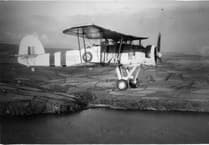This week’s article has been ‘inspired’ by a recent telephone call to the ManxSPCA, a call in which an irate reader explained how appalled she was that a previous article had used the word ‘rat’. She felt the use of this word disrespected Manx traditions, and that an alternative word should have been used.
It’s well known on the Isle of Man that it’s unlucky to use the word ‘rat’, with the origins of this superstition dating back several centuries to seafarers and sailors who did not mention the word for fear of attracting bad luck or inclement weather. The Manx traditionally use alternative words to refer to a rat, words such as ‘longtail’, ‘ringie’, ‘joey’, ‘queerfella’ and ‘roddan’ (the latter being Manx Gaelic for rat).
Whatever name they use, most people dismiss the rat as a carrier of disease – an unclean pest to be avoided and killed. In fact, rats are super clean. They are fastidious groomers and do not like getting dirty if they can avoid it, and if they get something on their fur they will immediately try to clean it. They also like to groom each other (allogroom) and to gather and organise their food into neat piles.
It’s undoubtedly true that in certain locations rats should not to be encouraged, and none of us would want a hungry rat foraging in our kitchen cupboards, or chewing the wiring in our cars, but out in the wild they should be appreciated for the amazing creatures that they are.
Their intelligence cannot be underestimated. They are the first sign of twelve in the Chinese zodiac cycle, and people born in the ‘Year of Rat’ are said to be imbued with wisdom and creativity.
A rat was awarded the PDSA’s Dicken medal for ‘life-saving bravery and devotion to duty’ a couple of years ago, the only rodent to receive such an honour. In the 77 years that the medal has been awarded, 34 dogs, 32 pigeons, four horses and one cat have been recognised for their heroic efforts.
The Dicken award may be viewed by some as being anthropomorphic, but it undoubtedly raises the awareness of animals in our community, and helps to lead to their improved treatment. Not least when the recipient is such an underrated animal.
So, what did the prize-winning rat do to win his award? Magawa, a seven-year-old African giant pouched rat, had been sniffing out land mines in Cambodia for several years. In that time he discovered 39 mines and 28 other items of unexploded ordinance and he made safe an area of land the size of 20 football pitches.
And he did all of this in return for bananas!
Magawa, and other rats like him, are specially trained by a Belgian charity, Apopo, to sniff out the explosive TNT. Their acute sense of small makes them quicker at detecting ordinance than a metal detector because they ignore any scrap metal; and they are much easier and cheaper to train than dogs. Plus, their weight makes it less likely that they will inadvertently set off an explosive as they walk over it. It is estimated that the rats have identified the location of 160,000 landmines over the last two decades in Cambodia, Tanzania and Azerbaijan, with none of them dying as a result of their work.
Apopo also trains rats to detect tuberculosis in humans. They have screened half a million people so far, finding 40 percent more positive cases than the local hospitals in Africa have managed to discover. The next challenge for Apopo’s rats will be entering disaster zones (after an earthquake, for example) fitted with mini backpacks, cameras and microphones, to sniff out survivors trapped in spaces inaccessible to humans, dogs or robots.
Rats also make excellent pets. Not only are they intelligent they are also interactive, entertaining and easy to train – even affectionate. They form life-long bonds with their owners and respond to their sight and voice, and they love to have cuddles and will happily spend hours companionably sitting on, or next, to their owners.
So, long live the rat!
.jpg?trim=0,8,0,0&width=752&height=500&crop=752:500)



